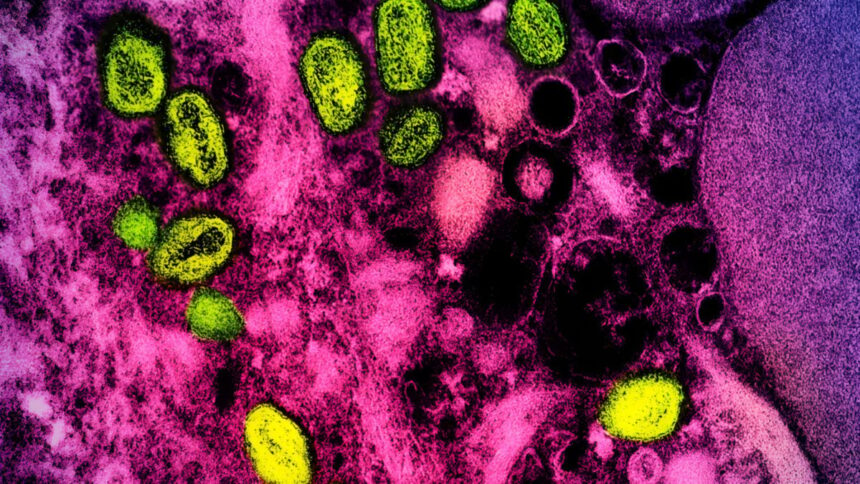Under our current age of Trump, it’s frankly stranger when the federal government doesn’t do something completely unproductive. The latest bit of pointlessness? The U.S. Department of Health and Human Services has switched back to using the name “monkeypox”—an outdated label for the disease mpox.
NPR was the first to report on the name switchback, which appears to have been implemented sometime in the last month. Nearly three years ago, virologists pushed for monkeypox to be retired, both for being potentially stigmatizing and factually inaccurate, since monkeys aren’t the primary hosts of the virus in the wild. HHS confirmed the switch to Gizmodo but offered no elaboration as to why it did so.
Why the change?
In November 2022, the World Health Organization officially adopted the label “mpox” to describe the viral disease, following a concerted effort by relevant experts and scientists to retire “monkeypox.” This name was quickly reaffirmed by many health organizations and countries, including the U.S.
The reasoning was twofold. One, though humans first discovered monkeypox in a group of lab monkeys in the 1950s, we now know that rodents are its predominant animal hosts. Since 2022, the disease has also spread widely between people, causing outbreaks across the globe—another sign of monkeypox’s outdatedness. Though outbreaks have generally lessened in most parts of the world, the disease still causes large surges of illness to this day.
Secondly, many scientists noted the harmful racial and ethnic connotations of the name. People have long used “monkey” as a racist shorthand for Black or African people, and some have cast monkeypox as strictly an “African” disease (mpox is still most prevalent in parts of Africa, but the global outbreak has clearly illustrated that it doesn’t respect borders).
Boghuma Titanji, a virus researcher at Emory University originally from Cameroon, recounted to NPR how her attempts to share information about the mpox outbreaks in 2022 quickly led to a pile-on from racist trolls on social media. “Likening me to a monkey, asking me to go back to Africa, where people have sex with monkeys, and being someone who defends gay sex with monkeys. Those were some of the really, really dark messages that I got in my inbox,” she told NPR.
What’s in a name?
There is, admittedly, some room for confusion here.
As it turns out, different organizations are responsible for naming a virus as opposed to the disease it causes. And while most experts and health agencies defer to the WHO’s guidance for a disease’s name, it’s the International Committee on Taxonomy of Viruses (ICTV) that decides the formal name of the virus.
Right around the same time that WHO was considering a name change, the ICTV stated that it would not drastically change its labeling of the virus behind mpox. Though the group has been updating its classification of many virus groups lately, it ultimately only added a broader label in front to illustrate its closeness to other similar pox viruses. So its official species name is now Orthopoxvirus monkeypox (if it’s any consolation, many scientists have complained about the ICTV’s virus name updating for other reasons).
It’s this distinction that HHS may be hanging its hat on in order to support the name switch. An HHS spokesperson told Gizmodo, “Monkeypox is the name of the viral disease caused by the monkeypox virus.”
To be clear, though, that’s not accurate. Or at least, monkeypox isn’t the name that most every other health agency around the world now uses for the viral disease caused by the monkeypox virus; that’s mpox. That long list also currently includes the Centers for Disease Control and Prevention, since the agency (part of HHS) is still using mpox on its webpage about the disease. Since the last update of that page occurred in April 2025, though, it’s probably only a matter of time before that changes as well.
As for why the federal government is doing this, who honestly knows? Trump and other members of his administration have made it clear that they despise the WHO, to the point of stripping away the funding the U.S. has historically provided to the agency. But that doesn’t really explain why the change is happening now. For all we know, someone got in Trump’s or Health Secretary RFK Jr.’s ear last month and scared them into thinking “mpox” is too woke a term for the U.S. to endorse.
What we can say for sure is how utterly pointless any of this is.
Read the full article here












